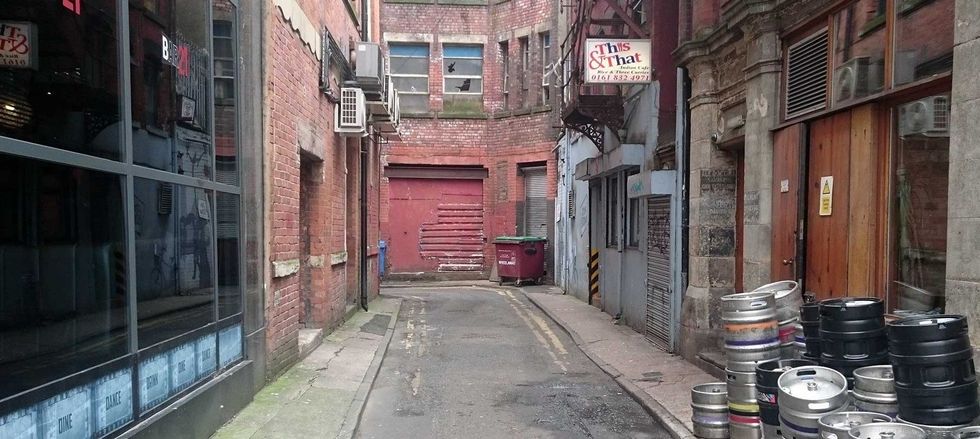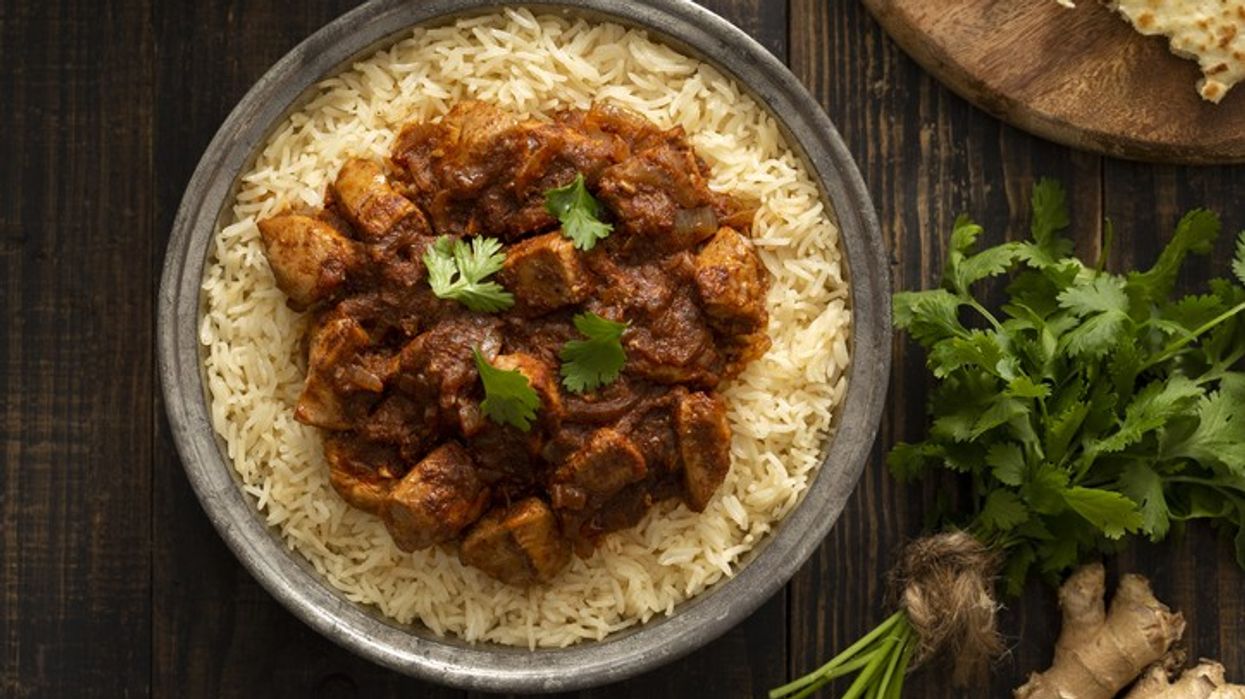In the heart of Greater Manchester, a hidden gem beckons the taste buds of locals and curious visitors alike – the legendary 'Rice and Three' cafes. Nestled in the Northern Quarter, these unassuming eateries offer a uniquely Mancunian twist to south Asian cuisine.
In the 1980s, the concept of 'Rice and Three' cafes made its debut in Greater Manchester, and one of the most renowned establishments is This and That in the Northern Quarter. Formerly owned by the Essa family, they decided to sell the business due to the commute from Bolton, opting to open two stores in their hometown instead, giving rise to 'Rice and Three'.
The menu featured options like chicken, kheema, lamb, chana, kidney beans, cauliflower, and paneer, with daily rotations. But there is a speciality of the this dish 'Rice and Three', it is not an ordinary dish which generally south Asians especially from India, Pakistan, Bangladesh or any other surrounding country prefer.
The interconnection of Asian rice dishes, acting as a cultural bridge that binds the roots of British Asians with their Asian heritage. It particularly resonates with the boomer generation, evoking nostalgia and recalling cherished childhood dishes.
The significance of soul-comforting food, offering a homely ambiance amid the hustle and bustle of the busy city, distinct from the fast-food landscape.
Emphasizing the fusion of Asian and British cultures, the narrative delves into the historical context of World War II migration, illustrating how this culinary tradition reflects the harmonious blending of diverse influences in contemporary British society.
Thali, meaning 'large plate' in Hindi, features an elaborate serving style with rice, naan, and assorted curries in small bowls. In contrast, the more straightforward 'Rice and Three' concept originated at This & That in Manchester's Northern Quarter in 1984.
The canteen catered to south Asian communities and locals unfamiliar with the cuisine. The unique culinary tradition evolved due to post-World War II industrial changes, drawing migrant workers to the textile warehouses.
Self-employment and communal support blossomed, leading to the rise of canteens prioritizing speed and convenience.
In the ever-evolving culinary landscape of Manchester, the 'Rice and Three' tradition remains a testament to the city's rich history, diverse communities, and the enduring appeal of a hearty, quick, and affordable meal. Visit a local café, a point at your favourites, and savour the unique fusion of Mancunian warmth and south Asian flavours.
The most famous locations that serve the dish 'Rice and Three' are located in the main hub of Manchester, are as follows:
This & That Cafe Home of Rice & Three Curries

Since 1984, this family-run establishment stands as a beloved Indian curry house in the heart of Manchester. Nestled on Soap Street in the vibrant Northern Quarter, they offer an extensive selection of delectable curries. Every dish is crafted with care, using homemade recipes and fresh whole spices to ensure an authentic taste and a burst of maximum flavour. Discover the essence of our culinary tradition as we continue to be a cherished destination for those seeking an exceptional dining experience in Manchester's lively food scene.
Cafe Marhaba, Back Piccadilly
Nestled in the heart of the city on Back Piccadilly, Cafe Marhaba is an unassuming gem that might escape notice at first glance. This classic curry cafe, though discreet, is a favorite among those in the know, offering a delightful range of curry and rice. Don't miss out on the experience at this discreet city-centre spot.
Yadgar, in contrast to This and That, has steadfastly maintained its original charm, resisting the allure of renovation. As one of the Northern Quarter's longstanding establishments, this no-frills gem proudly offers a 'rice and three' experience on humble paper plates, all for a fiver. Amidst its unpretentious setting, Yadgar also boasts a menu featuring other acclaimed homemade dishes. You can find this timeless eatery at 71 Thomas Street, Manchester M4 1LQ, inviting patrons to savor a taste of tradition in the heart of the city.
The previous proprietors of This and That have brought the authentic rice and three experience to their hometown of Bolton, now showcased in their two restaurants. While it might be debated whether it's the true original, there's no doubt about its deliciousness. Plus, affordability is a highlight, with a plate of one meat, two veg, and rice priced at just £4.60. You can enjoy this culinary delight at either 90-82 Bradshawgate or 152 Deane Road, Bolton, experiencing the rich flavors that have become a hallmark of their establishments.
Check the joints, stay connected to your roots, try the popular dish, 'rice and three'!




